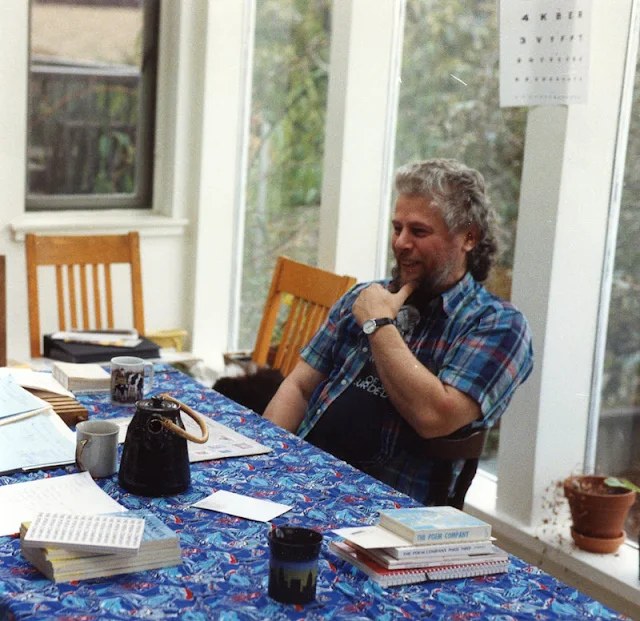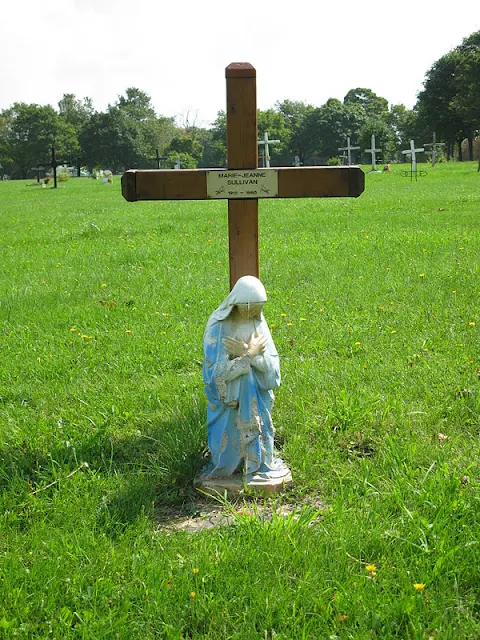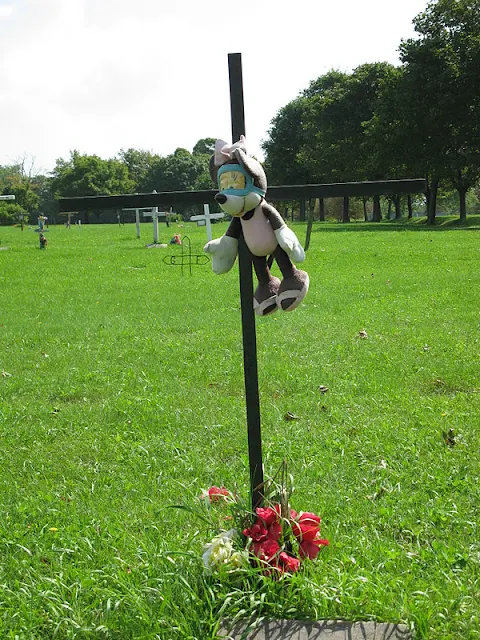Wednesday, July 11, 2012
The Grey Nuns' Residence
Now a residence for Concordia University's downtown campus, the old Grey Nuns' residence is located on Blvd. Rene Levesque.
Saturday, June 30, 2012
C.G. Jung on poetry
C.G. Jung on poetry:
Great poetry draws its strength from the life of mankind, and we completely miss its meaning if we try to derive it from personal factors. Whenever the collective unconscious becomes a living experience and is brought upon the conscious outlook of an age, this event is a creative act which is of importance to everyone living at that age. A work of art is produced that contains what may truthfully be called a message to generations of men. So Faust touches something in the soul of every German. So also Dante’s fame is immortal, while The Shepherd of Hermas just failed of inclusion in the New Testament canon. Every period has its bias, its particular prejudice and its psychic ailment. An epoch is like an individual; it has its own limitations of conscious outlook, and therefore requires a compensatory adjustment. This is effected by the collective unconscious in that a poet, a seer or a leader allows himself to be guided by the unexpressed desire of his times and shows the way, by word or deed, to the attainment of that which everyone blindly craves and expects—whether this attainment results in good or evil, the healing of an epoch or its destruction.
--C.G. Jung, Modern Man in Search of a Soul
Monday, June 25, 2012
Wednesday, June 20, 2012
Lost, found, missing
News Flash! Montreal is the North American capital for deserting animals when people move. It's more than 75,000 animals left behind, dropped off on the roadside, left at the SPCA, or otherwise disposed of as Quebecers move, en masse, every year on July 1st. Maybe people think someone else will move in and adopt their cat, dog, hampster, guppies, or other animals... Individual social responsibility (as opposed to imposed collective action) was never a high point in la belle province. Bob Barker, where are you when we need you?
Re. these photos: I love finding repeated actions on city streets; for instance, lost, found, and missing pet posters. Always home made, they are often plaintive cries for the return of their missing pet. Photos of disappeared cats or dogs, or parrots, taken when the animal wasn't lost, a time of happiness, become mug shots of possibly miserable animals. All of our childhood fears of being deserted by our parents return to us as we look at these posters; context is everything for transformation; the animal now becomes an archdetype for our fears of abandonment.
Friday, June 15, 2012
Sunday, June 10, 2012
Monday, June 4, 2012
Wednesday, May 30, 2012
Ralph Maud in 1995
Friday, May 25, 2012
Nellie McClung in 1991
Thursday, May 24, 2012
Poetry Must be Authentic to Psyche
There is an expression of our psyche in
everything we do including writing poetry. Great poetry is always authentic to
psyche, that is, it is an expression of the psychology, of the soul, of the
depth of perception of the poet.
All poets face the question of whether or
not they will censor what they write, this is something a poet must decide each
time he or she sits down to write if there are any doubts about the writing. We
need to ask ourselves, “If I censor what I write am I being authentic to
psyche?” We don’t have to write everything that crosses our mind, but most of
the time we need to be true to ourselves in our writing.
All poets go through years of
apprenticeship to learn how to write poetry, the lyf so short,
the
craft so long to lerne. There is also the necessity
to be aware of the “insecurity of art”, that being creative, writing poetry,
requires an attitude of insecurity, not thinking you know all the answers.
There is also the important quality of investing in our writing an authenticity
to the psychic content. Without this authenticity, I don’t feel that poetry has
much, or any, significance.
What does it mean to be authentic to
psyche? Poetry that is authentic to psyche is poetry that people anywhere, at
any time, will respond to; they will find this poetry consistent with their own
vision of life, or find their vision enlarged by poetry. Readers can identity
poetry that is authentic to psyche because they resonate to these poems that
speak directly to their soul; it is the reader’s soul that identifies the
authenticity of these poems that speak the truth of life, of existence, to the
reader.
To be authentic to psyche is to be aware of
a mythic quality in poetry. This removes poetry from the merely personal and
quotidian to an impersonal and universal context while still relying on the details
of the personal and quotidian. Being authentic to psyche is to write poetry
that represents the archetypal dimension of psyche. “Real” poetry is always
authentic to psyche, it contains psychic content; that is, there is the presence
of archetypes, symbolism, metaphor, and so on.
Sunday, May 20, 2012
Ken Norris, Artie Gold, and Stephen Morrissey
 |
| Here are the rest of the photos from our evening out at a Chinese restaurant on St. Laurent. Here's Ken Norris on the phone before they had cell phones... |
 |
| Here's Ken at the Gazette's book fair back in 1993. |
 |
| Here I am (ever the conservative) with Ken Norris. |
 |
| There's SM, Ken Norris, and Artie back in 1993. |
Wednesday, May 16, 2012
Visiting Irving Layton in 1997
 |
| Irving Layton, CZ, Noni Howard. |
 |
| Irving and Noni. |
 |
| Irving Layton and SM. |
 |
| Irving Layton lived in his old age on Monkland Avenue, just a few blocks from where we live. I knew Layton's nephew/best friend, Bill Goodwin, who taught at Champlain College when I first began teaching there. Bill would have Irving read at the college every year. I remember, after one reading, driving home with Irving and Bill and talking with Irving. Noni Howard is a poet and an old friend Irving Layton's, she is also an old friend of CZ's, so when she came to visit in 1997 (or 1998) we all went down to Irving's and visited. These photos are from that occasion. Coracle Press will publish a chapbook of Noni Howard's poems this summer: visit Coracle Press. |
Saturday, May 12, 2012
Ed Varney in 1992
 |
| Here's Ed in his kitchen/work space from when he lived in Kerrisdale and he and CZ worked on the Poem Factory publications. |
Wednesday, May 2, 2012
Friday, April 27, 2012
Subscribe to:
Comments (Atom)











































